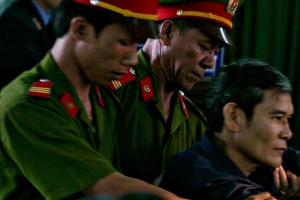Vietnam released from prison a Catholic priest in time for the visit of U.S President Barack Obama in the communist state.
Father Thadeus Nguyen Van Ly.was arrested and jailed in 2007 for promoting religious and political freedom that were considered an affront to the government structure of Vietnam. His release pleases the Catholic Archdiocese, which has been at odds with the government.
On the other hand, the United States announced that it had lifted the arms embargo against Vietnam which observers believed a clear manifestation of the two countries shared concerns over Beijing's assertiveness in the South China Sea.
The announcement was made on time Obama's first visit to Hanoi, which his welcoming hosts described as the arrival of a warm spring and a new chapter in relations between two countries that were at war four decades ago.
But Obama dismissed the speculation saying "the decision to lift the ban was based on our desire to complete what has been a lengthy process of moving towards normalization with Vietnam."
Ly is already 70-years-old and looks frail as he alighted from the government van. It was not his first detention. Two years after Vietnam fell to communist rule in 1977 he was arrested and detained for spreading propaganda against the government.
Officials of the Archdiocese warmly welcome Ly and confirmed that the priest has health problems while in prison.
Ly's released was considered the first step towards Vietnam's change of hearts for its dissidents.
"We consistently have called for the release of Father Ly and all other prisoners of conscience in Vietnam. We remain deeply concerned for all prisoners of conscience in Vietnam." Gabrielle Price of the US State Department said.
Obama is the third U.S. president to visit Vietnam since diplomatic relations between the two countries were restored in 1995.
Vietnam, a neighbor of China, is considered a key part of that strategy amid worries about Beijing's assertiveness and sovereignty claims to 80 percent of the South China Sea.

















